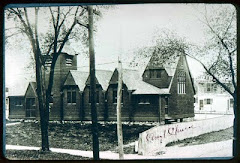Children can respond to the Good News but need it to be explained with simple language. They don’t understand the religious terminology adults use, and if their acceptance is based on a superficial grasp of doctrine, or fear of punishment, or desire for reward, or peer pressure, or to please a parent or teacher, they may feel the need to receive Christ repeatedly.
Children need to understand 5 things:
What sin is…choosing to do wrong
Who Jesus is…God’s Son, who loves us
We don’t have to earn/deserve His love
Jesus died to take our punishment
When we trust Jesus we become His children forever
God wants to forgive all who want forgiveness. He promises that all who believe in Jesus are part of God’s family and will have everlasting life in Heaven. Explain that God loves us and wants us to be part of His family forever; that means when we die, we will go to be with God, and while we’re alive, He helps us every day.
Object lessons are popular but young children think concretely and symbolism is often abstract to them. It is better to tell Bible stories and relate them to life. For example:
Jesus talking with Nicodemus, John 3
Jesus talking with the woman at the well, John 4
Paul and Silas telling a jailer about Jesus, Acts 16
Ask them to tell in their own words what they think the stories mean. Ask if they understand why Jesus died, what a person needs to do to become a Christian, what it means to believe.
When quoting Scripture to children, use a modern translation appropriate for the age group, such as the NIrV (New International Readers Version) or NLT (New Living Translation). Find out if the child has a modern language Bible, or preferably a Children’s Study Bible, such as the NIrV Adventure Bible for Young Readers. Be sure the children know what the Bible is—God’s teaching for us.
A few good verses to use:
I John 1:9, “If we tell our sins to God, he is faithful and true; He will forgive us and take our sins away.”
I Peter 3:18, “Jesus suffered and died for sins once and for all time. He did what is right died for those who don't do right. He died to bring you to God. His body was put to death. But the Holy Spirit brought him back to life.”
Romans 3:23, “Everyone has sinned. No one measures up to God's glory.”
John 3:16, “God loved the world so much that he gave his one and only Son so that whoever believes in Him will not be lost, but have eternal life.”
-You may want to assign these as memory verses.
We become Christians by asking Jesus in prayer. Praying means telling Jesus that we’re sorry for our sin and want His forgiveness.
How do we know if we’re really God’s children? The Bible promises that God will never let go of us, that He will always love us…
John 10:27-28, “My sheep listen to My voice. I know them, and they follow me. I give them life that last forever, and they will never be punished. No one can steal them out of My hand.”
But salvation is more than a decision…it is a new life, a journey of living for Jesus
Ask how will being a child of God will make us different at home and school? What will happen when we do something wrong?
*A possible prayer children can pray:
“Jesus, I know You love me so much You died on the cross for all the things I’ve done wrong. Please forgive me. Come into my heart; I want You to be my friend and teacher. Help me to follow and become like You. Thank You for making me part of Your family forever. Amen.”




